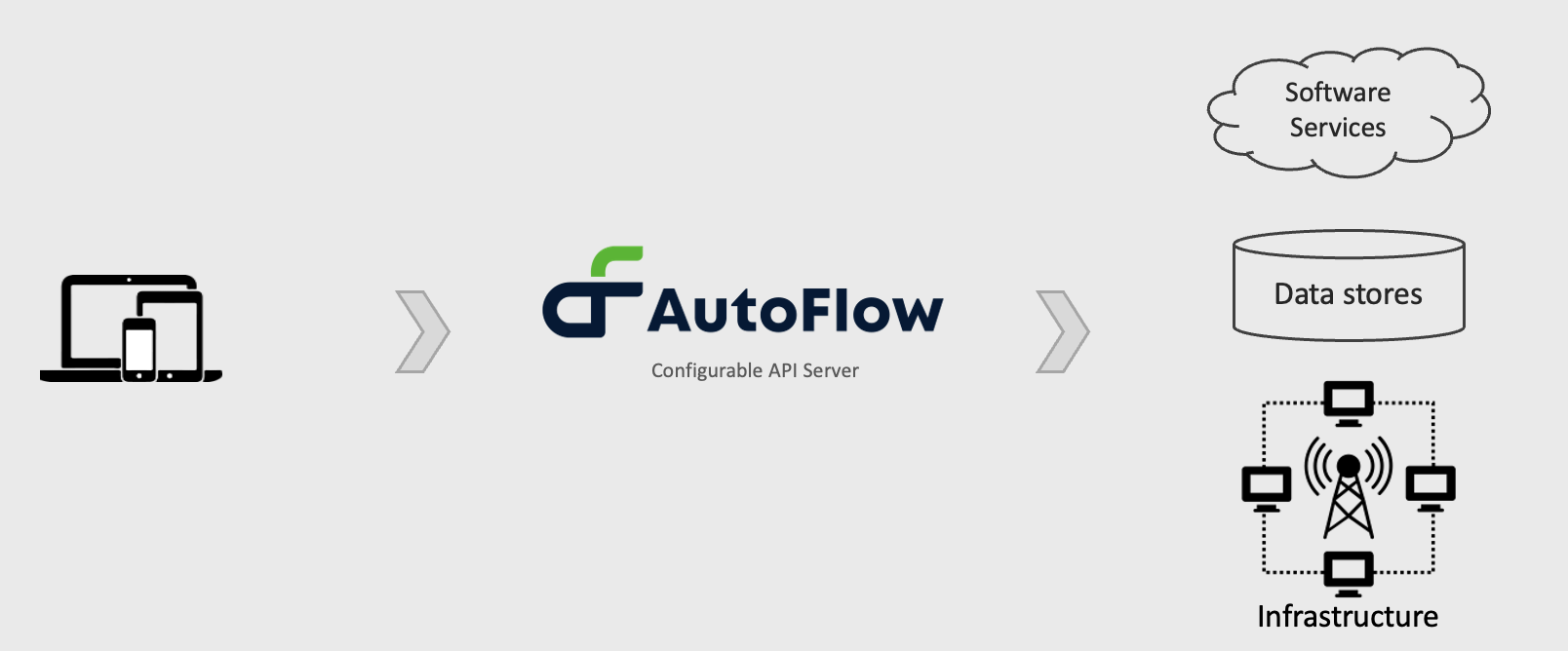What is an API Server?
An API server is a type of software that allows different applications to communicate with one another. It is an intermediary between different systems, allowing them to share data and functionality. This can include providing access to data, automating a process, or acting as a backend for an application. API servers are a key part of modern software development used in many industries and contexts.
As the maker of a leading configurable API server, API AutoFlow, I’ll explain what API servers are, how they work, and some of their most common use cases.
What are API Servers?
An API server sits between the “client” and the “data source.” The API server sits behind API gateways or management systems in more extensive networks. API servers are typically developed using Node, ~~~~. API servers use protocols and standards, such as REST or SOAP, to communicate between systems. They allow developers to access and manipulate data and functionality in a consistent and controlled way. API servers are widely used in modern software development and are commonly used in many different industries and contexts, such as e-commerce, social media, and healthcare.
How Do API Servers Work?
API servers provide a set of endpoints, which are specific URLs that applications can request. When an application requests an API server, it sends along certain information, such as authentication credentials and the data it wants to retrieve or manipulate. The API server then processes the request and returns a response, typically including the requested data or a message indicating whether the request was successful.
API servers use a set of protocols and standards to handle the communication between different systems. The most common protocol is REST (Representational State Transfer), a simple and flexible way to handle online communication. RESTful APIs are stateless, meaning it doesn't store the previous interactions.
API servers also use different authentication and authorization methods to ensure that only authorized users and systems can access the data and functionality they provide. For example, some API servers use tokens, which are unique strings of characters that are passed along with requests, to authenticate users and systems. Other API servers use OAuth (Open Authorization), a widely used protocol for authorization.
.png?width=1080&height=1080&name=Most%20Common%20Use%20Cases%20of%20api%20servers%20(1).png)
What are the Most Common Use Cases?
It is not wrong to say that the entire Internet is operated by API servers. But the use of API servers goes far beyond internal communications to IoT and 5G connectivity. Below are some of the most common use cases:
- Telecommunication: Modern telco infrastructure operates on APIs. Telcos are investing hundreds of millions of dollars in enabling API for all the systems.
- E-Commerce: API servers often facilitate communication between e-commerce websites and other systems, such as payment processors and inventory management systems.
- Social Media: API servers allow third-party applications to access and manipulate data from social media platforms, such as posting updates, retrieving user information, and sending private messages.
- Healthcare: API servers communicate between electronic health records systems, hospitals, and other healthcare providers, allowing them to share patient information and other data.
- Banking and Finance: API servers communicate between financial institutions (i.e., banks and stockbrokers) and other systems (i.e., accounting and tax software).
- Internet of Things (IoT): API servers communicate between IoT devices (i.e., smart thermostats, security cameras, and smart home devices) and other systems (i.e., smartphones and home automation systems).
- Mobile App Development: API servers allow mobile apps to communicate with a server-side system, such as a database, to retrieve and store data.
- Logistics and Transportation: API servers allow communication between transportation systems (i.e., shipping companies and tracking systems) and other systems(i.e., inventory management systems).
82% of the world’s Internet runs on API, so speed and efficiency in development is the key to success.
Configurable API servers such as API AutoFlow help companies accelerate growth while reducing the cost of development. Whether you are a developer or a business leader, selecting the right API servers can take your company to the next level.

Ready to Learn?
Want to learn more about how API AutoFlow can help your company accelerate? Reach out to schedule a call.
Tags:
API Integration
March 29, 2023

Comments